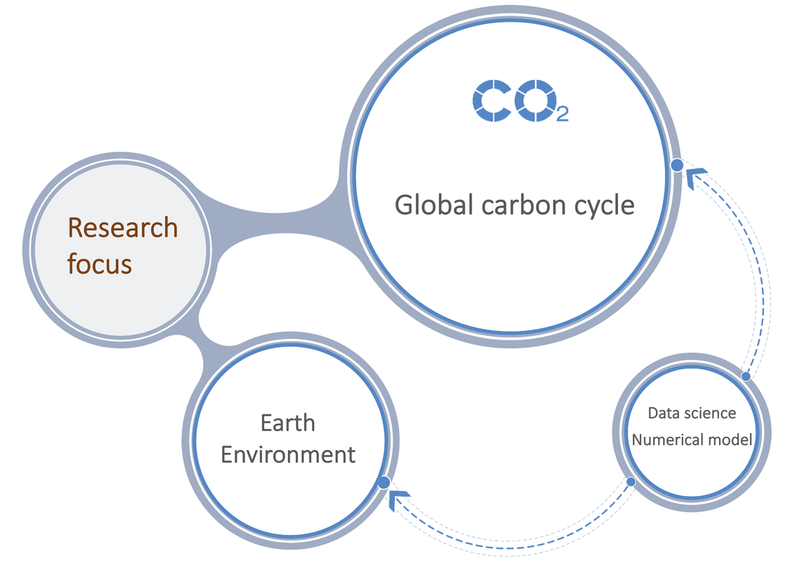|
What are we doing?
Welcome to CACEE Lab @ Texas A&M University!
Our group broadly uses data-driven and model-driven approaches to quantify the patterns of element flux and isotope behavior involved in the global carbon and biogeochemical cycles, especially under periods of climatic perturbations. Extensive data mining, data assimilation, large-scale spatial-temporal statistical analysis, and machine learning are frequently used in our research projects. We hope geo-statistics and machine learning could reveal the intrinsic patterns of nature’s processes that are sometimes extremely difficult to be captured by classical physical process models. With that being said, in areas where data is extremely limited or data-driven approaches are not suitable, numerical modeling (e.g., modeling the global carbon cycle) also serves as a critical tool in our research. |
Recent News
2024-05-22
Dr. Zhang publishes a new paper in Current Biology. Zhang, S., Solan, M., & Tarhan, L. (2024). Global distribution and environmental correlates of marine bioturbation. Current Biology. https://doi.org/10.1016/j.cub.2024.04.065 This research was featured on the ArtSci website as well as Texas A&M Today, titled "Texas A&M-Led Team Creates First Global Map of Seafloor Biodiversity Activity". today.tamu.edu/2024/05/28/texas-am-led-team-creates-first-global-map-of-seafloor-biodiversity-activity/ 2024-03-11
Graduate Student Shihan Li publishes a new paper in Global and Planetary Change. Li, S., Zeebe, R. E., & Zhang, S., (2024). iLOSCAR: interactive Long-term Ocean-atmosphere-Sediment CArbon cycle Reservoir model v1.0. Global and Planetary Change, 236, 104413. https://doi.org/10.1016/j.gloplacha.2024.104413 2023-12-11
Dr. Shuang Zhang and Graduate Student Shihan Li delivered poster presentations at the 2023 American Geophysical Union (AGU) Conference. Dr. Shuang Zhang chaired a session and co-hosted a workshop at the 2023 AGU Conference. |
Copyright ©2023 by CACEE Lab

